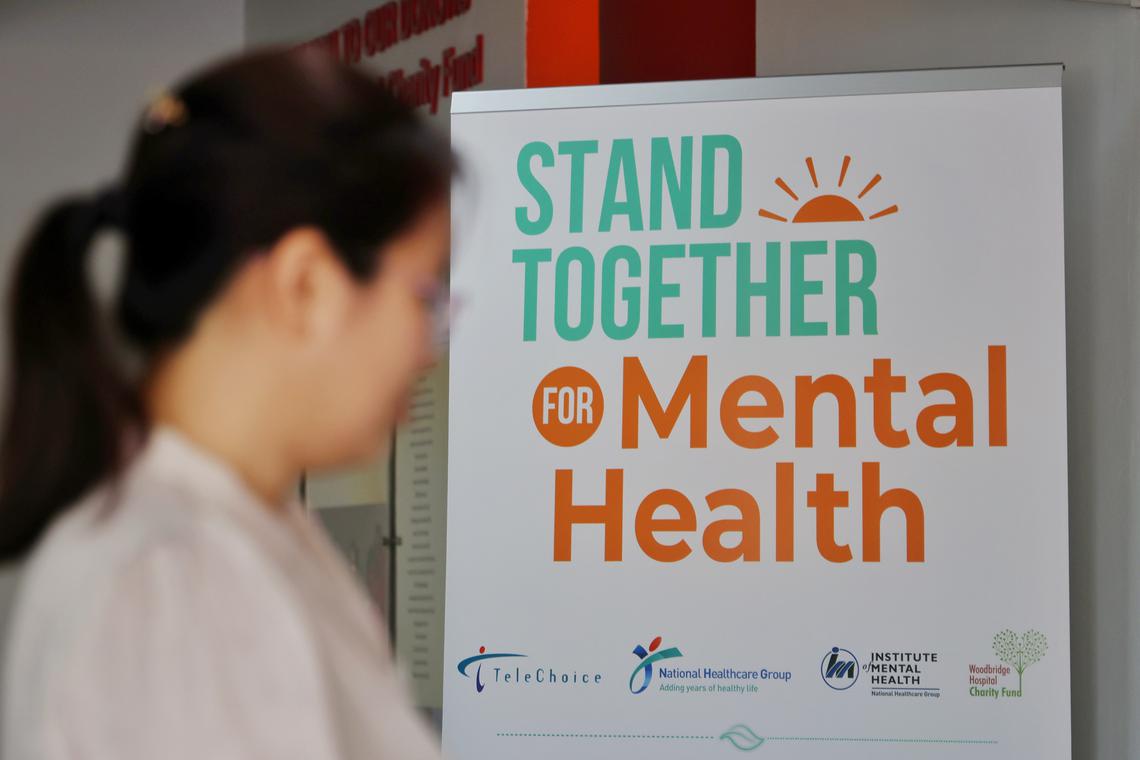SINGAPORE – To enable more patients to better access mental health care when they urgently need it, acute psychiatry services will be expanded across all healthcare clusters.
Dr Koh Poh Koon, Senior Minister of State for Health, made the announcement on July 16 at the opening of the Singapore Mental Health Conference at Singapore Expo. He said that mental health services within acute hospitals remain an important and significant touchpoint for individuals with acute mental health needs requiring specialist care and for those in crisis.
“While the Institute of Mental Health continues to serve as the national tertiary psychiatric hospital offering comprehensive inpatient and outpatient mental healthcare, we plan to expand acute psychiatry services across all our healthcare clusters to meet patients’ needs islandwide,” he said.
“This means that more patients will have greater access to help when they urgently need it.”
Currently, inpatient psychiatric care in Singapore is available at six out of 11 public hospitals. These are the Institute of Mental Health (IMH), Tan Tock Seng Hospital, National University Hospital, Changi General Hospital, Singapore General Hospital and Sengkang Hospital.
Outpatient specialist mental health services are available at IMH and all acute hospitals.
Dr Koh also announced the launch of a practice guide for healthcare providers in the community to assess mental health conditions – starting with depression and anxiety – and refer individuals with these conditions to receive help, if and as needed.
These moves come amid a national effort to make mental health a key priority. On June 18, the Government launched national mindline 1771, the country’s first national mental health hotline and textline service.
The first-stop touchpoint integrates traditional and digital modes of communication – voice call, WhatsApp messaging and webchat, to cater to the preferences of different help-seekers. It is operated by IMH.
“The bottom line is, anyone who needs help should be able to find the help they need, in whatever medium they are comfortable in,” said Dr Koh.
The practice guide, he said, prescribes how client-centric mental health care should be delivered based on the principles of the Tiered Care Model.
The model has four levels of mental health support, ranging from mental health promotion, self-help and peer support at Tier 1, to the most intensive level of care in hospitals and specialist clinics at Tier 4.
Available on the MOH website, the guide aims to standardise assessment methods and referral procedures across service providers based on the intensity and stability of clients’ symptoms, and the types of care required, Dr Koh said.
For example, a Community Outreach Team (Crest) – a Tier 2 service under the national strategy – may refer a distressed individual with moderate mental health needs to a Community Intervention Team (Comit), which is a Tier 3 service, if a standardised assessment tool has determined that the client requires further diagnosis and/or psychosocial intervention, explained Dr Koh.
The guide was jointly developed by the Ministry of Health (MOH), Ministry of Social and Family Development, and Agency for Integrated Care (AIC), with input from numerous stakeholders.
With the practice guide, there will be greater consistency in how service providers deliver care and help their clients navigate the mental health ecosystem.
To begin with, it focuses on the management of depression, anxiety and suicidality, and may be expanded to cover other less common mental health conditions in the future, Dr Koh said.
Dr Swapna Verma, the co-chairperson of the workgroup for the practice guide, explained that they started with depression and anxiety as these are the two most common mental health conditions, and the majority of these cases can be managed in the community.
Starting in 2026, general practitioners will begin managing mild to moderate cases of anxiety and depression within the community, as part of the Healthier SG preventive care initiative.
For instance, she explained that a social service agency seeing a patient, whom it has assessed to have moderate mental health needs can refer him or her to a GP, rather than to IMH.
Similarly, GPs can refer a patient who needs psychosocial treatment to a social service agency nearby, she added.
Dr Swapna indicated that they will be looking at developing guidelines for other conditions, such as obsessive-compulsive disorder and schizophrenia, in the next phase, although the timeline is not yet clear.
The practice guide allows providers to speak a common language, with the use of a risk score to determine which tier a patient falls under. “It’s to standardise definitions, so that when someone says that this person has severe suicidality, there’s a common understanding,” she said.
This then makes it easier for the healthcare clusters to then link GPs with social service agencies, allowing for more seamless patient referrals within the community, she said.
In his speech, Dr Koh also said that MOH will roll out a pocket guide for people to more easily identify the types of mental health support and services available. More details will be provided at a later date, he said.
IMH chief executive Daniel Fung said the expansion of acute psychiatric services will make crisis care more accessible, though prevention remains the primary focus.
Significant efforts are underway in Singapore, with a stronger focus on developing digital mental healthcare as a tool for preventive care, he said.
Traditionally, mental health care has relied on human interaction but there is a shortage of mental health professionals available to do face-to-face mental health work. This is where technology offers a solution to bridge the gap.
In the future, for instance, a patient can see a psychiatrist once a month, and in between, an app offering cognitive behavioural therapy could be recommended to help him in managing his mood, said Dr Fung.
The eighth edition of Singapore Mental Health Conference runs from July 16 to 17, with a heavy focus on digital mental health and artificial intelligence. Jointly organised by IMH, National Council of Social Service, AIC, and the Health Promotion Board, it attracted more than 1,000 attendees on July 16.
